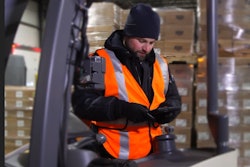
The concept of sustainability has been around for quite some time. However, it continues to evolve with every passing decade.
And, how brands act in response to the Coronavirus disease (COVID-19) pandemic is something that will shape perceptions amongst consumers for the long-term, according to a report released by FMCG Gurus. This is because in times of uncertainty, consumers pay closer attention to the practices and policies of brands.
Welcome to Food Logistics’ sustainability issue, packed with interviews discussing sustainable food chain trends and technologies, navigating the 3PL network for specialty foods and expert columns detailing sustainable warehousing, sustainable fleets, sustainability-focused apps and food imports and exports.
And, check out our improved Top Green Providers award, complete with more reader-friendly charts.
What we’ve learned from putting together this issue is that sustainable practices and policies will make or break a supply chain in the time of need.
In a Facebook Live interview with Abe Eshkenazi, chief executive officer of The Association for Supply Chain Management, we discussed chain disruptions on the line with regards to sustainability.
“This is a watershed moment for organizations. At a business roundtable last year, it was identified that among corporate responsibility was social, and that is a significant difference because we’ve always known the economic performance as a critical metric for organizations. But, embracing ethical and environmental standards to ensure that you are a sustainable organization. I think it bears mention that the consumer is becoming much more conscious about their organizations and who they buy from, and I’d like to see organizations be more transparent about their sustainability practices.”
Furthermore, a Quantzig survey suggests that the food supply chain is one of the hardest-hit segments, and is expected to lead to acute shortages of certain product categories, including meat and poultry.
Cue Tyson Foods’ insinuation that the supply chain is breaking.
“As pork, beef and chicken plants are being forced to close, even for short periods of time, millions of pounds of meat will disappear from the supply chain,” John Tyson, chairman of the Board of Tyson Foods wrote in a letter published as an advertisement.
What’s more is, disrupted supply chains are among the most salient impacts of the COVID-19 pandemic on the food and beverage industry, due to border closures, travel restrictions and trade embargos, according to a Mintec study.
However, the COVID-19 pandemic is likely to alter consumer behaviors permanently, and cause lasting structural changes to the consumer goods and retail industries, according to an Accenture survey.
For instance, 64% of consumers said they’re focusing more on limiting food waste and will likely continue to do so going forward; 50% said they’re shopping more health-consciously and will likely to continue to do so; and 45% said they’re making more sustainable choices when shopping and will likely continue to do so.
And, it’s the sustainability factor that will keep supply chains thriving amid a global pandemic.
Whether it’s implementing agricultural sustainability standards, encouraging more waste reduction or initiating supply chain software optimization, sometimes it takes a pandemic to remind companies that corporate social responsibility is paramount during times of crisis.
But, with the right sustainability measures in place, today’s supply chains will continue to sustain through whatever disruptions are ahead.
















